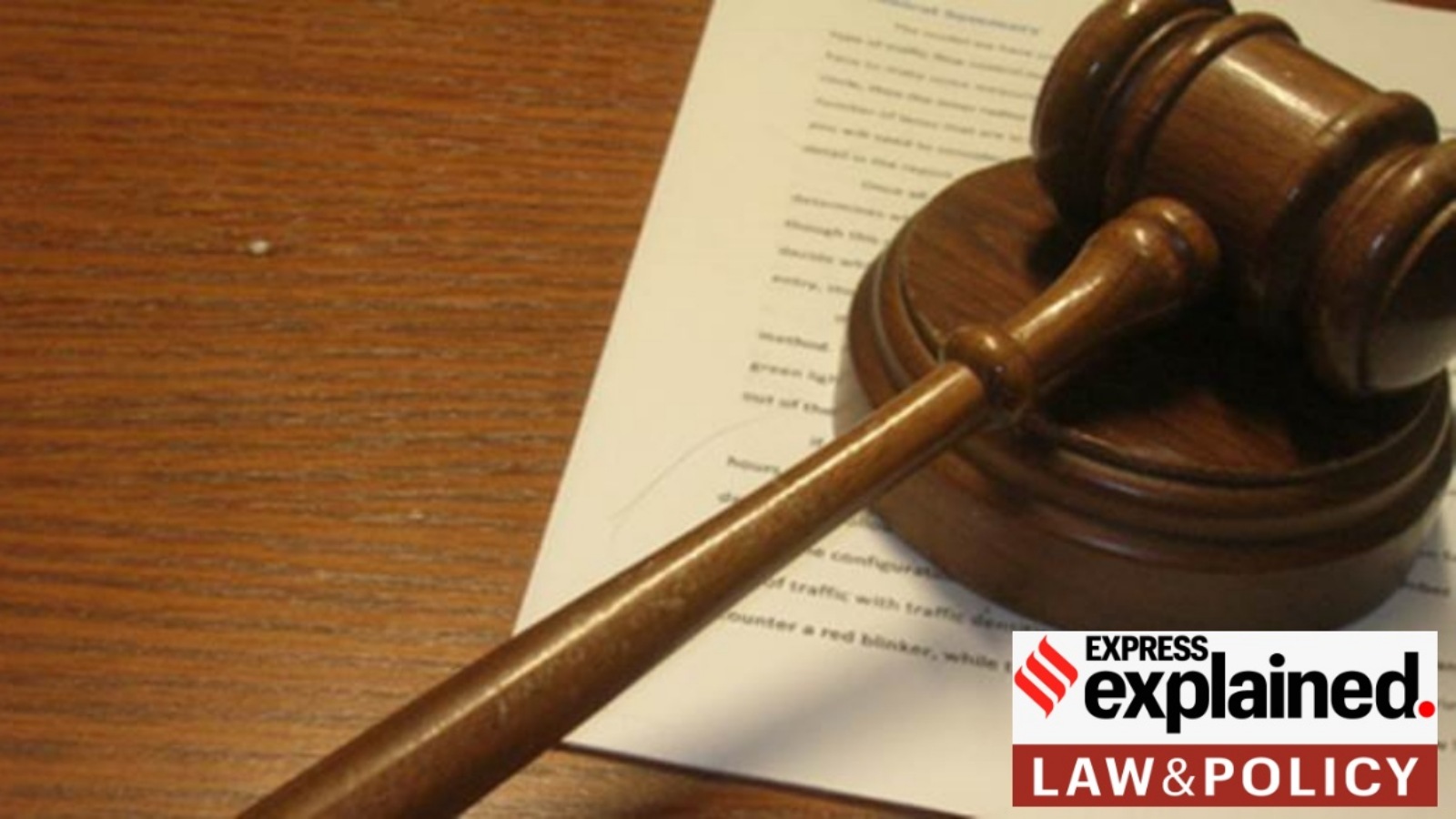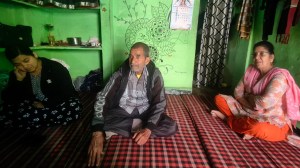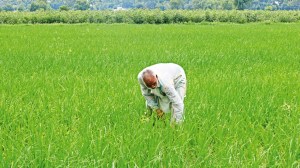Some states have argued that despite reservation, some castes are grossly underrepresented in comparison with the so-called dominant Scheduled Castes. They want to create a separate quota for such castes within the SC quota of 15%, to ensure that the benefits are adequately distributed.

In 2004, a five-judge Constitution Bench in ‘E.V. Chinnaiah v State of Andhra Pradesh’ held that only the President could notify which communities could receive reservation benefits as per Article 341 of the Constitution, and that states did not have the power to tamper with this.
A number of states have now returned to the Supreme Court to argue against the Chinnaiah decision, claiming that states do have the power to make sure reservation benefits are distributed to communities that need them the most. The respondents on the other hand, defended the Chinnaiah judgment and argued that all Scheduled Castes must be treated equally.
The beginning
In 1975, the Punjab government issued a notification dividing its 25% SC reservation at that time into two categories. In the first category, seats were reserved solely for the Balmiki and Mazhabi Sikh communities, which were and continue to be considered two of the most economically and educationally backward communities in the state. Under the policy, they were to be given first preference for reservation in education and public employment. The second category consisted of the rest of the SC communities.
While the notification remained in force for nearly 30 years, it ran into legal hurdles when in 2004, a five-judge Constitution Bench struck down a similar law introduced by Andhra Pradesh in 2000. In ‘E.V. Chinnaiah v State of Andhra Pradesh’, the Supreme Court struck down the Andhra Pradesh Scheduled Castes (Rationalisation of Reservations) Act, 2000 for being violative of the right to equality. The law contained an expansive list of Scheduled Caste communities in the state and the quota of reservation benefits provided to each of them.
The court held that the sub-classification would violate the right to equality by treating communities within the category differently, and said that the SC list must be treated as a single, homogenous group. The rationale was that since the Constitution classifies certain castes in a Schedule as they historically faced discrimination due to untouchability, they cannot be treated differently from one another.
Story continues below this ad
The court also drew attention to Article 341 of the Constitution, which gives the President the power to create a list of SC communities for the purposes of reservation. The five-judge Bench held that this meant states did not have the power to “interfere” or “disturb” this list, including through sub-classification.
Two years after the apex court ruling, the Punjab & Haryana High Court in ‘Dr. Kishan Pal v. State of Punjab’ struck down the 1975 notification.
The appeal
In October 2006, four months after the Punjab & Haryana High Court struck down the notification, the Punjab government attempted to bring back the law by passing the Punjab Scheduled Caste and Backward Classes (Reservation in Services) Act, 2006. This Act reintroduced the first preference in reservations for the Balmiki and Mazhabi Sikh communities.
In 2010, the High Court once again struck down this provision. The Punjab government then moved the Supreme Court.
Story continues below this ad
In 2014, the Supreme Court in ‘Davinder Singh v State of Punjab’, referred the appeal to a five-judge Constitution Bench to determine if the 2004 E V Chinnaiah decision required reconsideration, since it needed an inquiry into the interplay of several constitutional provisions. Interpretation of the Constitution requires a Bench of at least five judges of the Supreme Court.
Reconsidering the E V Chinnaiah ruling
In 2020, the Constitution Bench headed by Justice Arun Mishra held that the court’s 2004 decision required reconsideration. The ruling noted that the court and the state “cannot be a silent spectator and shut its eyes to stark realities.” The ruling disagreed with the premise that Scheduled Castes are a homogeneous group and said there are “unequals within the list of Scheduled Castes, Scheduled Tribes, and socially and educationally backward classes.”
Crucially, since the E V Chinnaiah decision, the concept of a “creamy layer” has also trickled down to SC reservations.
In the landmark 2018 ruling in ‘Jarnail Singh v Lachhmi Narain Gupta’, the Supreme Court upheld the concept of “creamy layer” within SCs too. The ‘Creamy layer’ concept puts an income ceiling on those eligible for reservations. While this concept applies to Other Backward Castes (OBC), it was applied to promotions of SCs for the first time in 2018.
Story continues below this ad
States have argued that the sub-classification is essentially an application of the creamy layer formula, where instead of excluding the better-off castes from the Scheduled Caste list, the state is merely giving preferential treatment to the most disadvantageous castes.
Since the Davinder Singh Bench was also of five-judges (same as E V Chinnaiah), a larger seven-judge Bench is now hearing the issue — only a larger Bench’s judgement can prevail over the decision of a smaller Bench.
Apart from Balmikis and Mazhabi Sikhs in Punjab and Madiga in Andhra Pradesh, Paswans in Bihar, the Jatavs in UP, and Arundhatiyars in Tamil Nadu will also be impacted by the sub-classification strategy.
The arguments on both sides
The Advocate General of Punjab, Gurminder Singh, argued that E.V. Chinnaiah was mistaken when it held that states could not tamper with the classes that comprised the Presidential list under Article 341.
Story continues below this ad
Highlighting the language used in Article 16(4) of the Constitution, he pointed out that the Article allows the State to provide reservations for backward classes who are not “adequately represented” in State services. As the phrase used is “adequately” and not “equally”, Singh argued, there is no obligation to provide the same opportunities to every community in the Presidential list.
Additional Advocate General of Punjab Shadan Farasat pointed out that the recently introduced Article 342A on the Constitution made it clear that the Chinnaiah decision could no longer apply. This provision specifically empowers States and Union Territories to maintain a list of Socially and Economically Backward Classes which may be different from the Presidential list.
Former Attorney General KK Venugopal also made a rare return to court to argue in favour of sub-classification. Recalling his experience arguing in the Chinnaiah case, he stated that without sub-classification, the weakest sections of society will be left behind, defeating the very purpose of reservations.
Senior Advocate Sanjay Hegde, appearing for the respondents, argued that all the communities included in the Presidential list suffered from the “taint of untouchability”, and the Constituent Assembly made a choice not to enter into comparisons of who suffered the most.
Story continues below this ad
He then claimed that if a community named in the Presidential list did not receive reservation benefits, they would only be left with the stigma of being a Scheduled Caste. Another intervenor similarly argued that states did not have the discretion to ignore some Scheduled Castes in favor of others.
The Bench took note of this point and CJI Chandrachud acknowledged that the court would have to lay down criteria to ensure popular politics does not affect the granting of reservations.








































